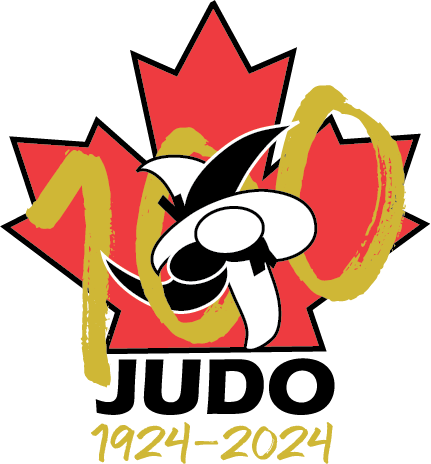THE BEGINNING
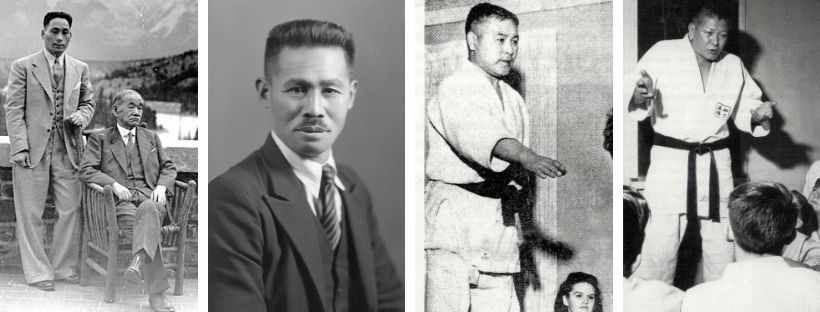
Jigoro Kano founded judo in 1882 in Japan by combining the techniques and the philosophies of several schools of jujitsu.
In Canada, judo started with the establishment of the first dojos in the Vancouver area run by Sensei (teachers) of Japanese origins.
There is some indication that judo was practised in Vancouver as early as 1910, but the only substantial records of early judo in Canada claims that the first permanent dojo was established in 1924 by Shigetaka Sasaki, the father of Canadian judo.
With members of the RCMP detachment undergoing instruction, many toward black-belt status, interest in judo among the non-Japanese community began to grow. In 1933 there were a few Caucasians competing in the spring and fall tournaments in Vancouver, and many more were interested spectators.
In 1936, Jigoro Kano travelled to Berlin to make another presentation of judo to the International Olympic Committee. He travelled to Canada first, where he selected Shigetaka Sasaki to accompany him on this very important mission.
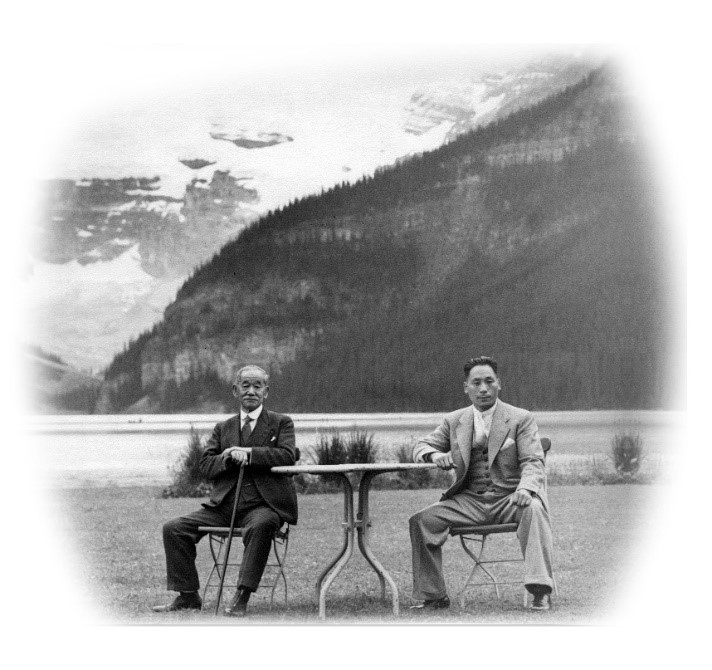
Professor Jigoro Kano accompanied by Shigetaka Sasaki at Lake Louise, en route to the International Olympic Committee meeting and the 1936 Olympic Games in Berlin.
More and more members of the community at large were becoming interested in judo. Judo was starting to flourish. Then came a reversal of fortune, Japan’s entry into World War II in 1941. This set the Japanese-Canadian community, and judo, back several decades. In 1941, all clubs were closed.
Shortly after Japan’s bombing of Pearl Harbor on December 7, 1941, the Canadian Government, now at war with Japan, decreed that all people of Japanese descent in B.C. must evacuate a 100-mile zone running along the Pacific Coast because of supposed threats to military security. This expulsion ultimately led to the seeding of judo throughout Canada when the displaced Japanese Canadians opened dojos wherever they resettled.
The postwar dojos opened east of the Rockies in the mid-to-late 1940s, as B.C. judokas accepted any type of employment elsewhere in Canada as a legitimate means to escape the detention camps with their families intact. It was not until 1949 that people of Japanese origin could return to the West Coast, so the reopening of dojos there did not happen until the 1950s, almost a decade later. This explains why the headquarters for judo shifted from Vancouver to Toronto where a large number of B.C. judokas resettled in the mid-to-late 1940s.
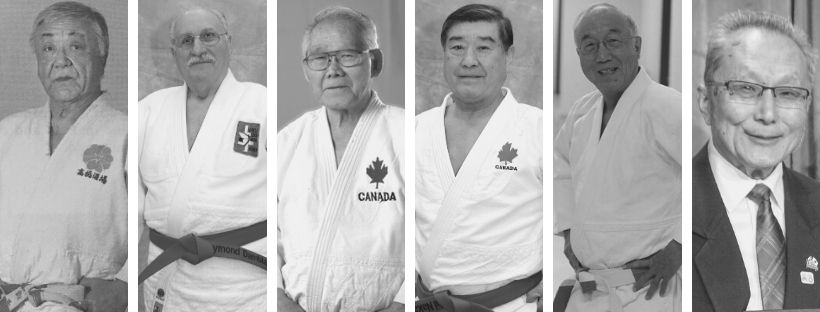
Many are the stories of the beginnings of small clubs started selflessly by men who had learned their judo in B.C. nurtured it through wartime, and then established nuclei across the country like seeds blown from a plant. Each seed begot a mature tree which, in turn, produced more seeds and more trees.
Glynn A. Leyshon
Author of the first edition of Judoka The History of Judo in Canada
“The names of our Senseis were those of the pioneers of judo in Canada, whose self-sacrifice was the foundation of our, and the following generation’s, Olympic aspirations. Sasaki, Hatashita, Takahashi, Senda, Sakai, Okimura, Kuramoto, Mukai, Mitani, Kimura, Kamino, and Doi are a few of many who built a legacy on the commitment to judo principles that are seen in dojos across Canada today.
This is, however, far more than just a story of judo instruction and competition success. It is also a story of tremendous human character and resilience, and a testament to the strength and power of the human spirit.”
Brad Farrow, 2019
Eleven Time Canadian National Champion
Three Time Olympic Team member – 1976, 1980, 1984
OUR HIGHLIGHTS
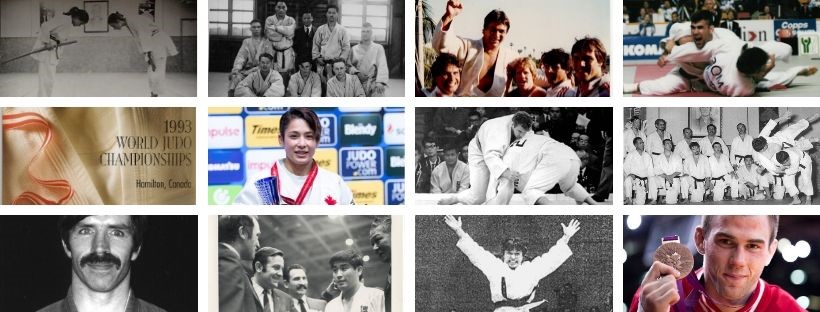
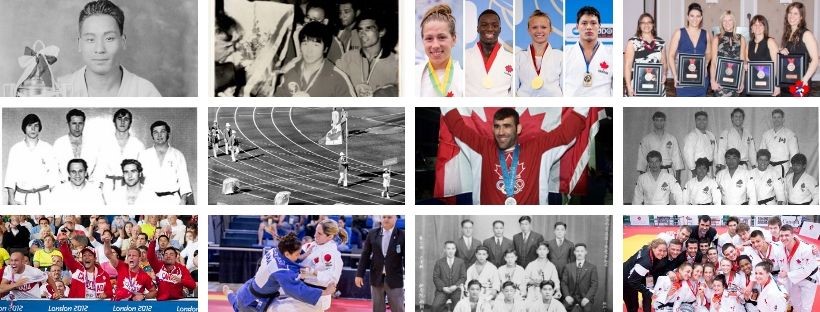
1924 Foundation of the first permanent dojo in Canada called at the time Tai Iku Dojo, founded by Steven Shigetaka Sasaki the ‘’father pf Canadian Judo’’.
1932 First visit to Canada by Professor Jigoro Kano
1956 Establishment and recognition by the IJF of the Canadian Judo Federation (Canadian Kodokan black belt association) meeting switched from Japanese language to English and first Canadian (Bernard Gauthier) to participate at a World Championships in Tokyo (Competition without weight category)
1959 First all Canadian Judo Championships held in Winnipeg, Manitoba. Fred Matt of B.C. became the first national champion & Elaine McCrossan was the first women in Canada to be promoted to black belt & 1st International competition for women at Hatashita Dojo.
1964 Judo joins the Olympic Games in Tokyo and Doug Rogers wins a silver medal and becomes Canada’s first Judo hero.
1965 Doug Rogers wins the first medal (bronze) for Canada at World Championships
1968 Hiroshi Nakamura arrives in Montreal from Japan, he became one of the most successful coach in the history of Judo In Canada and in 2019 is inducted by the COC Hall of fame
1972 In Munich, Raymond Damblant became the first Canadian to referee at the Olympic Games.
1976 Montreal Olympics Games & the first edition of a women national championships
1977 CKBBA also know as ‘’Judo Canada’’ opens an office in Vanier, On Claire Potvin serves as the 1st Executive Director.
1980 1st female World Championships in New York, Tina Takahasi places fifth in the under 48 kg category.
1981 Phil Takahashi and Kevin Doherty win bronze medals at the World Championships
1984 Mark Berger wins a bronze medal at the Los Angeles Olympics & Tina Takahashi wins a gold medal at the World University Championships in Korea.
1988 Eddie & Pier Morten win bronze medals at the Paralympic Games in Seoul, South Korea to become the first ever Paralympic medalist in Judo for Canada & Female judo is present in Seoul Olympic Games as a demonstration sport, Sandra Greaves is the first Canadian women to participate.
1992 Women judo joins the Olympic program in Barcelona and a young Nicolas Gill wins his first Olympic medals.
1993 Under the leadership of Jim Kojima, Hamilton, hosts the senior world championships for the first time in Canada highlighted by Nicolas Gill wins his first of three Worlds Championships medals.
1994 Andrée Ruest became the first women President of provincial association in Canada (Quebec)
1996 Canada is hosting the World University Championships in Jonquiere, Quebec. Nicolas Gill wins a gold medal.
1998 For the first time the Senior National Championships feature a Kata event.
1999 Canada is hosting the first edition of the World Master athlete Judo Championships. The Canadian creation was managed by Liz Roach from Ontario and travelled around the world for 12 years.
2000 Nicolas Gill wins a silver medal at the Olympics and Pier Morten wins a bronze medal at the Paralympic Games in Sydney, Australia.
2008 Marie-Hélène Chisholm became the first women to hold the position full-time of the assistant national coach for the women’s team
2012 Antoine Valois-Fortier wins a bronze medal at the London Olympics
2013 Jessica Klimkait & Louis Krieber-Gagnon became Cadet World Champions in Miami, USA
2013 Kyle Reyes becomes Canada 1st Junior World Champion in Ljubljana, Slovenia
2014 Catherine Beauchemin-Pinard wins a bronze medal at the Junior World Championships she is the only Canadian to win two medals at this event
2014 Shortly after Judo Canada open their world class NTC at the INS-Q, Antoine Valois-Fortier wins his first world medal. He currently stand with an Olympic bronze and 3 worlds medal
2016 The National office move to Montreal to be closer to the national training centre.
2018 Priscilla Gagné writes history by being the first women to win a medal (bronze) at the Paralympic World Championships in Odivelas, Portugal & Keagan Young wins a bronze medal at the Youth Olympic Games in Buenos Aires.
2019 Christa Deguchi becomes the first ever Canadian senior world champion.



